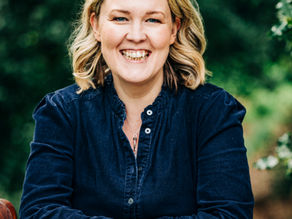top of page
WRITING
BLOG



How to get published
How to get published. A step by step insight into the steps one writer took to get published.
Dec 30, 20256 min read


How to Overcome Writer's Block
Winning strategies to write your masterpiece by guest blogger, Louise Kaestner. You’re staring at the word processor, stomach torn in shreds from the inside out. A deadline looms, whether it is for an assignment or a social media post. A wayward raven screams from outside your room, landing on the sill, its beak clattering on the glass. Bile rises in the back of your throat. Veins throb in your forehead. Sirens scream in the distance. Your world crashes before around you. The
Dec 14, 20254 min read


So, you've entered a writing competition...
Written by Ascent Novel Prize founder and competition addict, Hayley King The first time I entered a writing competition, I obsessively checked the dates. When was the long list going to be announced? When would I know how good my story was? A few years in, and I’d receive an email saying I’d been long listed for a competition I’d forgotten I’d entered. So, conscious you could be anywhere on that spectrum, I’ve designed a self-assessment tool that will help you find the right
Nov 12, 20255 min read
Search


How to get published
How to get published. A step by step insight into the steps one writer took to get published.
Dec 30, 20256 min read


How to Overcome Writer's Block
Winning strategies to write your masterpiece by guest blogger, Louise Kaestner. You’re staring at the word processor, stomach torn in shreds from the inside out. A deadline looms, whether it is for an assignment or a social media post. A wayward raven screams from outside your room, landing on the sill, its beak clattering on the glass. Bile rises in the back of your throat. Veins throb in your forehead. Sirens scream in the distance. Your world crashes before around you. The
Dec 14, 20254 min read


So, you've entered a writing competition...
Written by Ascent Novel Prize founder and competition addict, Hayley King The first time I entered a writing competition, I obsessively checked the dates. When was the long list going to be announced? When would I know how good my story was? A few years in, and I’d receive an email saying I’d been long listed for a competition I’d forgotten I’d entered. So, conscious you could be anywhere on that spectrum, I’ve designed a self-assessment tool that will help you find the right
Nov 12, 20255 min read


Why entering a writing competition late may be your best move yet
Apologies to my child for making her run up the hill to school. As Andy Gilbert says, 'Give yourself a deadline to stop planning and to start taking action.' Forgive me. I arrive late for everything. Time slips away, and before I know it, I’m making my children run up the hill to school. One has asthma. It’s not a good look. However, when it comes to writing, there’s an enjoyable thrill to a deadline. I’m not a risk taker, nor would you ever find me on some outrageous rolle
Oct 29, 20254 min read


How to win a writing competition
Judges are looking for your genuine voice and a story that only you can tell.
Oct 3, 20255 min read


The small joys of writing and the big joy of listing in a writing competition...
Hayley King: Founder of Ascent Novel Prize and competition addict. There are a host of ways that we, as humans, express ourselves. I...
Sep 24, 20254 min read


On becoming a published author...
Claire Frances: author of 'To Hell With It' Guest Blog: My Journey to Becoming a Published Author I’ve wanted to be an author since I...
Sep 15, 20256 min read


What's the best writing routine?
Forever on the hunt on ways to improve our productivity, what can we learn from other writers' routines? ...
Aug 15, 20255 min read


Writing competitions and AI
Why do writing competitions ban the use of AI? Hayley King: Ascent Novel Prize Founder and competition addict. As I sit to write this,...
Jul 14, 20255 min read


Writing competitions and rejection...
Hayley King: Ascent Novel Prize Founder and writing competition addict. If you’ve entered a competition and haven’t placed, you know...
Jul 7, 20255 min read


What are the best writing competitions?
Hayley King - Ascent Novel Prize Founder and writing competition addict How do you decide which writing competition to enter? And, of...
Jul 1, 20256 min read


Submit Your Manuscript: A writing competition with a difference
How is Ascent Novel Prize different to other writing prizes?
May 30, 20252 min read
bottom of page